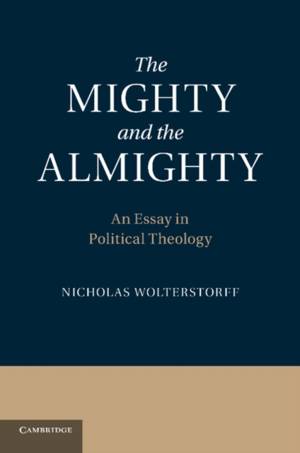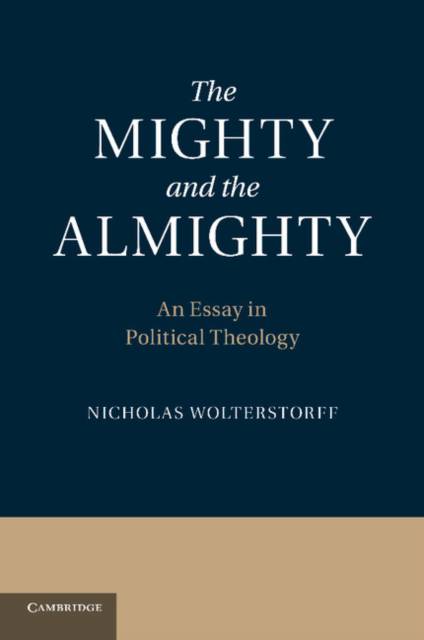
Door een staking bij bpost kan je online bestelling op dit moment iets langer onderweg zijn dan voorzien. Dringend iets nodig? Onze winkels ontvangen jou met open armen!
- Afhalen na 1 uur in een winkel met voorraad
- Gratis thuislevering in België vanaf € 30
- Ruim aanbod met 7 miljoen producten
Door een staking bij bpost kan je online bestelling op dit moment iets langer onderweg zijn dan voorzien. Dringend iets nodig? Onze winkels ontvangen jou met open armen!
- Afhalen na 1 uur in een winkel met voorraad
- Gratis thuislevering in België vanaf € 30
- Ruim aanbod met 7 miljoen producten
Zoeken
€ 82,45
+ 164 punten
Uitvoering
Omschrijving
For a century or more political theology has been in decline. Recent years, however, have seen increasing interest not only in how church and state should be related, but in the relation between divine authority and political authority, and in what religion has to say about the limits of state authority and the grounds of political obedience. In this book, Nicholas Wolterstorff addresses this whole complex of issues. He takes account of traditional answers to these questions, but on every point stakes out new positions. Wolterstorff offers a fresh theological defense of liberal democracy, argues that the traditional doctrine of 'two rules' should be rejected and offers a fresh exegesis of Romans 13; the canonical biblical passage for the tradition of Christian political theology. This book provides useful discussion for scholars and students of political theology, law and religion, philosophy of religion and social ethics.
Specificaties
Betrokkenen
- Auteur(s):
- Uitgeverij:
Inhoud
- Aantal bladzijden:
- 190
- Taal:
- Engels
Eigenschappen
- Productcode (EAN):
- 9781107673809
- Verschijningsdatum:
- 27/02/2014
- Uitvoering:
- Paperback
- Formaat:
- Trade paperback (VS)
- Afmetingen:
- 152 mm x 229 mm
- Gewicht:
- 263 g

Alleen bij Standaard Boekhandel
+ 164 punten op je klantenkaart van Standaard Boekhandel
Beoordelingen
We publiceren alleen reviews die voldoen aan de voorwaarden voor reviews. Bekijk onze voorwaarden voor reviews.











